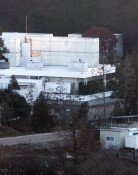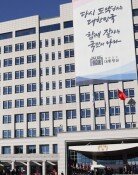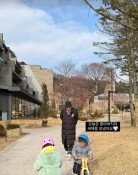N. Koreas free market clampdown
The seeds of capitalism in North Korea began to grow in the mid-1990s when "jangmadang," or farmers` markets, emerged across the Stalinist country in the wake of the ration distribution system breaking down due to food shortages. North Koreans started trading for what they needed and later used cash. Many of them made money selling South Korean products obtained from China after removing the product label "Made in (South) Korea." Pyongyang implemented a disastrous currency revaluation in November last year to take the wealth accumulated by its people.
North Koreans achieved survival by their own efforts while its administration relied on overseas aid. When the Norths distribution system collapsed, Pyongyang took advantage of the pro-North Clinton administration of the U.S. and the sunshine policy-led Kim Dae-jung administration in South Korea. The North received heavy oil aid from the U.S. and money and rice from the South. Over this period, a variety of private markets were created in the North. In 2001, a North Korean had to pay 10 million won (8,700 U.S. dollars) to a broker to escape to South Korea. Because of the growing number of brokers, however, the price has dropped to just 1 million won (870 dollars).
A capitalist economy collects taxes but the communist regime in the North does not. North Koreans can easily accumulate wealth thanks to the absence of taxes and regulations. Certain officials in Pyongyang also earned money because of this advantage. Last years currency revaluation came as Seoul suspended unconditional support after the launch of Lee Myung-bak administration in 2008. Faced with severe difficulty, the North stole wealth from its people. Farmers lost money as Pyongyang limited funds transferrable to its new currency, raising the wealth of the communist state.
Because the currency revaluation led to severe inflation and worsened public sentiment, experts say the North tried to scare its people by attacking the South Korean naval vessel Cheonan in late March. Pyongyang tried to calm its peoples anger by creating an atmosphere of fear through coercive military parades. How much longer its oppression of the private market will continue is uncertain, but the North Korean people have experienced the benefits of capitalist markets and could threaten the Norths power succession plan.
Editorial Writer Lee Jeong-hoon (hoon@donga.com)







